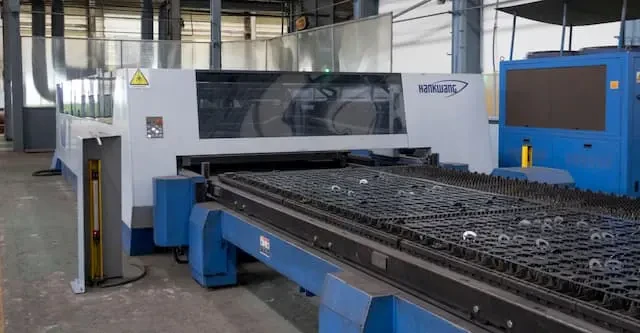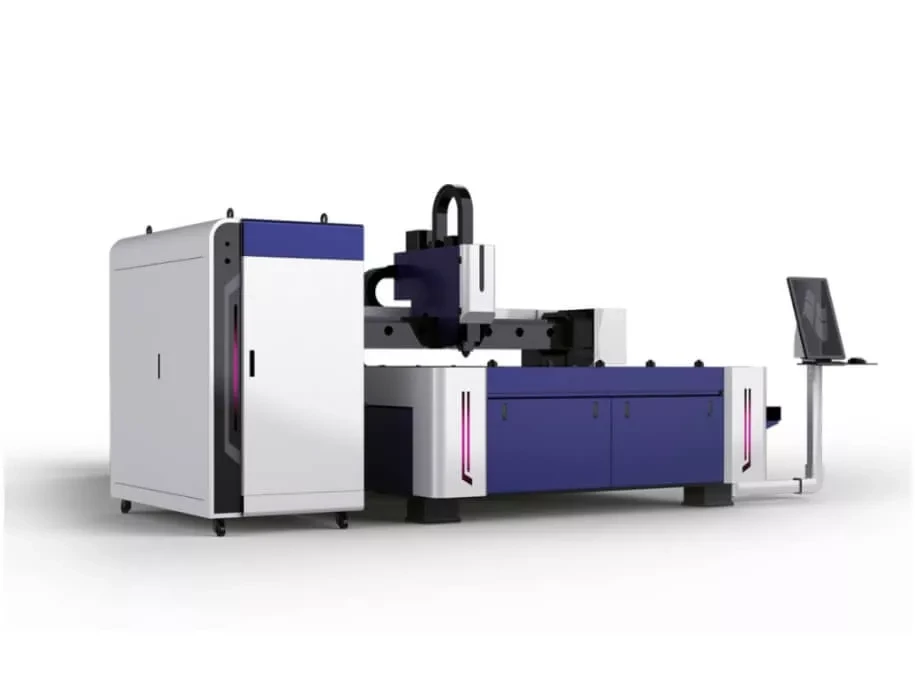How to Choose the Right Laser Machine for Your Business

How to Choose the Right Laser Machine for Your Business
In today's competitive marketplace, integrating the right technology can significantly boost productivity and quality. Laser machines, known for their precision and versatility, are an invaluable asset across various industries, from manufacturing to creative arts. However, choosing the right laser machine for your business can be daunting, given the variety of options and specifications available. This comprehensive guide will help you navigate through the critical factors to consider, ensuring you make an informed decision that aligns with your business needs.
Understanding Different Types of Laser Machines
Laser machines can be categorized based on their functionality and the type of laser they use. The three primary types are CO2 lasers, fiber lasers, and diode lasers. Each type has unique characteristics and applications.
CO2 Lasers:
- Applications: Ideal for cutting, engraving, and marking on non-metallic materials such as wood, acrylic, glass, paper, leather, and plastics.
- Advantages: High precision and smooth cutting edges.
- Considerations: Not suitable for metals unless coated.
Fiber Lasers:
- Applications: Perfect for cutting and marking metals, including steel, aluminum, brass, and copper.
- Advantages: High efficiency, low maintenance, and long lifespan.
- Considerations: Higher initial cost compared to CO2 lasers but offers cost savings over time.
Diode Lasers:
- Applications: Commonly used for engraving and marking on both metals and non-metals.
- Advantages: Compact size and lower cost.
- Considerations: Generally less powerful than CO2 and fiber lasers.
Key Factors to Consider
When selecting a laser machine, consider the following critical factors to ensure it meets your business requirements:

Material Compatibility:
- Identify the primary materials you will be working with. CO2 lasers are excellent for non-metals, while fiber lasers are preferred for metals. Diode lasers offer versatility for both, albeit at lower power.
Power Requirements:
- The power of a laser machine, measured in watts, determines its cutting and engraving capabilities. Higher wattage allows for cutting thicker materials and faster processing speeds. For example, a 100W CO2 laser is suitable for cutting thicker acrylics and wood, while a 30W fiber laser is sufficient for marking metals.
Work Area Size:
- The work area size dictates the maximum dimensions of the material you can work on. Choose a machine with a work area that accommodates your largest projects. For instance, if you plan to work on large signage, a machine with a bigger work area is necessary.
Precision and Accuracy:
- Precision and accuracy are vital for intricate designs and detailed work. Ensure the machine has high resolution and repeatability specifications. Look for machines with features like auto-focus and high-quality optics to enhance precision.
Speed and Efficiency:
- Evaluate the machine's working speed, positioning speed, and writing speed. Faster machines can significantly increase productivity, especially for high-volume operations. Consider your production demands to choose a machine that balances speed and accuracy.
Software Compatibility:
- Ensure the laser machine is compatible with the design software you use. Some machines come with proprietary software, while others are compatible with popular design programs like AutoCAD, Adobe Illustrator, and CorelDRAW.
Ease of Use:
- User-friendly interfaces and intuitive controls can reduce the learning curve and improve operational efficiency. Look for machines with touch-screen controls, clear displays, and comprehensive manuals or tutorials.
Maintenance and Support:
- Regular maintenance is crucial for the longevity of your laser machine. Choose a machine from a reputable manufacturer that offers robust customer support, easy access to replacement parts, and clear maintenance guidelines.
Budget Considerations:
- While it may be tempting to choose the most affordable option, consider the long-term value. Higher-end machines often offer better performance, reliability, and support, leading to cost savings over time. Factor in the total cost of ownership, including maintenance and potential downtime.
Safety Features:
- Safety is paramount when operating laser machines. Look for machines with safety features such as enclosed laser paths, emergency stop buttons, and proper ventilation systems to ensure safe operation.

Making an Informed Decision
To illustrate how these factors come together, let’s consider a hypothetical business scenario:
Scenario: A small business specializing in custom jewelry and personalized gifts is looking to purchase a laser machine to enhance its production capabilities.
- Material Compatibility: The primary materials are metals (for jewelry) and acrylics/wood (for gift items).
- Power Requirements: A fiber laser with a power output of around 30W-50W would be ideal for metal engraving. A secondary CO2 laser with a power of 50W could handle non-metal materials.
- Work Area Size: A moderate work area of 300x200mm would suffice for most projects.
- Precision and Accuracy: High precision is essential for detailed jewelry designs, so a machine with fine resolution and excellent repeatability is crucial.
- Speed and Efficiency: While speed is important, the focus should be on precision for jewelry. The CO2 laser’s speed can enhance productivity for gift items.
- Software Compatibility: Compatibility with design software like Adobe Illustrator is necessary for custom designs.
- Ease of Use: User-friendly controls and a short learning curve will allow the small team to quickly adapt.
- Maintenance and Support: Choosing a reputable brand with good support ensures minimal downtime and easy maintenance.
- Budget Considerations: Balancing initial cost with long-term value, investing in mid-range machines that offer reliability and good performance is advisable.
- Safety Features: Ensuring the machine has proper enclosures and safety features to protect operators.
By carefully evaluating these factors, the business can select laser machines that enhance their product quality and operational efficiency, ultimately leading to higher customer satisfaction and business growth.
Conclusion
Selecting the right laser machine for your business is a critical decision that can impact your productivity, product quality, and overall success. By considering material compatibility, power requirements, work area size, precision, speed, software compatibility, ease of use, maintenance, budget, and safety features, you can make an informed choice that aligns with your specific needs.
Investing time in research and understanding your unique requirements will ensure you choose a laser machine that not only meets your current demands but also supports your future growth. Whether you are a small business owner or a large-scale manufacturer, the right laser technology can open up new possibilities and drive your business forward.
For more information on selecting the best laser machines and to explore a wide range of high-quality laser equipment, visit MartLaser.com. Our experts are here to help you find the perfect solution tailored to your business needs.
Recent Posts
Comprehensive Laser Machine Service: Ensuring Optimal Performance and Longevity
Essential Laser Machine Accessories: Maximizing Efficiency and Precision
Solid State Lasers: Revolutionizing Precision and Power in Modern Applications
Enhancing Precision: A Comprehensive Guide to Laser Lenses and Their Applications
Advancing Healthcare: A Comprehensive Guide to Laser Medical Equipment
Revolutionizing Manufacturing: A Comprehensive Guide to Laser 3D Printing Technology
The Power of Precision: A Comprehensive Guide to Laser Cleaning Technology
MARTLASER.COM, your reliable B2B2C sourcing center!
One-stop destination for all your laser shopping needs for B2B2C with great quality and competitive price.









